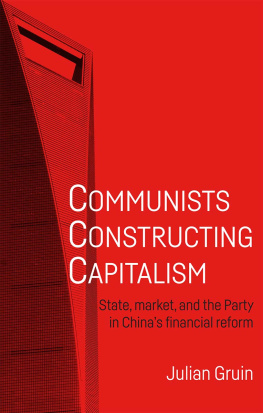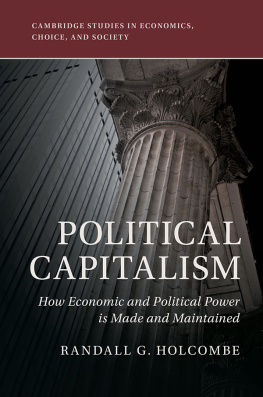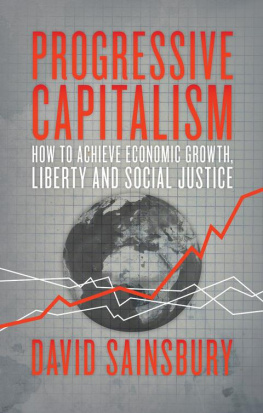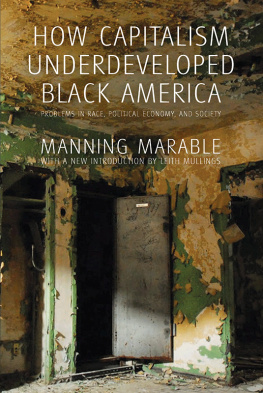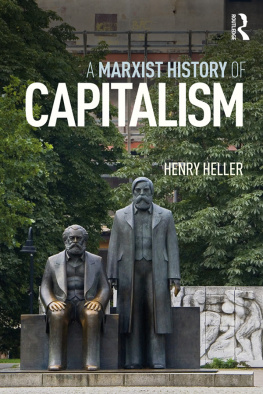First published 1985 by M.E. Sharpe
Published 2015 by Routledge
2 Park Square, Milton Park, Abingdon, Oxon OX14 4RN
711 Third Avenue, New York, NY 10017, USA
Routledge is an imprint of the Taylor & Francis Group, an informa business
Copyright 1985 Taylor & Francis. All rights reserved.
No part of this book may be reprinted or reproduced or utilised in any form or by any electronic, mechanical, or other means, now known or hereafter invented, including photocopying and recording, or in any information storage or retrieval system, without permission in writing from the publishers.
Notices
No responsibility is assumed by the publisher for any injury and/or damage to persons or property as a matter of products liability, negligence or otherwise, or from any use of operation of any methods, products, instructions or ideas contained in the material herein.
Practitioners and researchers must always rely on their own experience and knowledge in evaluating and using any information, methods, compounds, or experiments described herein. In using such information or methods they should be mindful of their own safety and the safety of others, including parties for whom they have a professional responsibility.
Product or corporate names may be trademarks or registered trademarks, and are used only for identification and explanation without intent to infringe.
Library of Congress Cataloging-in-Publication Data
Greenberg, Edward S., 1942
Capitalism and the American political ideal.
1. United StatesPolitics and government20th century. 2. United StatesEconomic policy. 3. United StatesSocial policy. 4. Welfare state. 5. Capitalism. I. Title
JK271.G733 1985 973.9 84-27722
ISBN 0-87332-292-4
ISBN 13: 9780873322935 (pbk)
We are today in the midst of a fundamental transformation in the way the American people think about government and its role in the life of the nation. Until the past decade, there seemed to be a growing consensus that the flourishing of American society in the twentieth century depended on the federal government's performance of an increasingly central role in managing economic and social relations. The majority of Americans, in their support for Progressive Era reforms, the New Deal, the Fair Deal, and the Great Society, appeared to have concluded that a strict separation between government and the economya key value of the American political traditionwas no longer possible in the modern world. The ideals of strictly limited government and an unrestricted free market, although ritually invoked, were in practice abandoned as the federal government, under both Democratic and Republican administrations, became an activist government in the service of other national valuesmilitary strength and security, economic efficiency and productivity, public health and safety, social justice and humanitarianism. By the seventh decade of the century, government had become enormous and omnipresentto some, a Leviathan; to others, a pitiful giant.
It is now obvious that the apparent consensus favoring an activist role for the federal government has been shattered; at the very least it is in headlong retreat. Ronald Reagan's sweeping victories in the 1980 and 1984 presidential elections are the most visible manifestations of this sea change in the political mood of the American people, but in fact, the "wrecking ball" of the traditional free-market/limited-government ideal has been at work on the activist state since the early 1970s. The continuous pounding has had profound effects, altering both the public mood and the agenda of political and economic elites. Only a distinct minority of Americans, for instance, continue to believe that the federal government can successfully manage, let alone solve, the complex problems confronting the nation; an emergent majority (of voters, at least) seems to believe, with Ronald Reagan, that government is not the solution but is itself the problem, and that revitalization and renewal of the nation require cutting government down to size and releasing the energies of individual initiative.
The shift in public mood may be gauged by the degree to which the parlance of conservatives has become the lingua franca of American politics, dominating political discourse even in the Democratic Party, long the champion of the expansion of government programs. Indeed, maverick Democrat George Wallace of Alabama was one of the first to tap into the emerging popular mood. In 1972, as a losing contender for the Democratic presidential nomination, he warned the party's convention delegates: "The monster bureaucracy is driving people in this country nuts. It should get off their backs and out of their pocketbooks.' ' President Jimmy Carter and California Governor Jerry Brown built their political fortunes in the 1970s on anti-Washingtonism, the politics of limits, and "government can't do everything" themes.
The current popular concern about government is a response not to some imagined development but to an unmistakable transformation in the very nature of American government and an explosive growth in its size, reach, and responsibilities. No longer is the federal government the "night watchman" state carefully wrought by the Founders; it is an active, potent engine of society and economy, impacting upon almost every facet of Americans' lives. It regulates business and the economy in general; owns vast quantities of land, equipment, and plant; regulates labor-management relations; distributes monthly payments to the elderly; helps educate the nation's children; provides welfare payments to the poor and disabled; regulates communications and commerce; undertakes vast explorations in outer space and under the seas; and takes for public use a healthy portion of every working American's paycheck. These wide-ranging activities, mostly products of this century, represent nothing less than a revolution in the responsibilities and functions of American government.
Yet despite (some would say because of) the enhancement of government size and responsibility, America's problems seem increasingly intractable. Our standard of living, despite a short-term resurgence in 1984-85, steadily disintegrates. The economy doesn't work the way it is supposed to work: unemployment won't go away, the banking system totters on the peak of a mountain of public and private debt, and our balance-of-trade situation continues to deterioriate. America's position in the world, for a short time unassailable and virtually unquestioned, has been undermined by our capitalist industrial rivals, challenged by the Soviet Union, and disregarded by upstart Third World regimes. Worst of all, nobody seems to know what to do about the domestic and international disintegration of the United States. Academic experts and assorted pundits give contradictory advice before Congress, in the professional journals, and in the mass media. Solutions that have worked in the past seem no longer to make sense.
Solving problems requires, of course, that their causes be understood, but the average American has precious few resources available for making such important judgments. To be sure, complaints and discontent about government are abundantindeed, they define much of the political landscape. But complaints and discontent are not enough; what is needed is explanation. Here, the problem is not quantity, but quality of explanation. Everyone, it seems, has something to say about how we came to have the kind of government we have, and how it led us into the current impasse. For the most part, however, these explanations remain undeveloped, fragmentary, and unconvincing. The vast expansion of government activities and policies has been extensively documented and described, but it has hardly begun to be explained in a fashion that is both theoretically tenable and broadly comprehensible.




